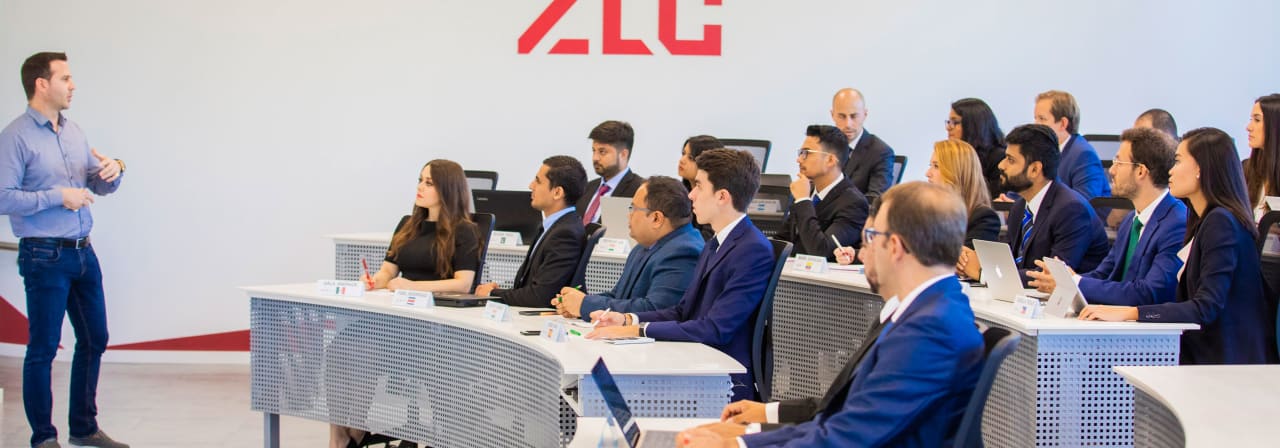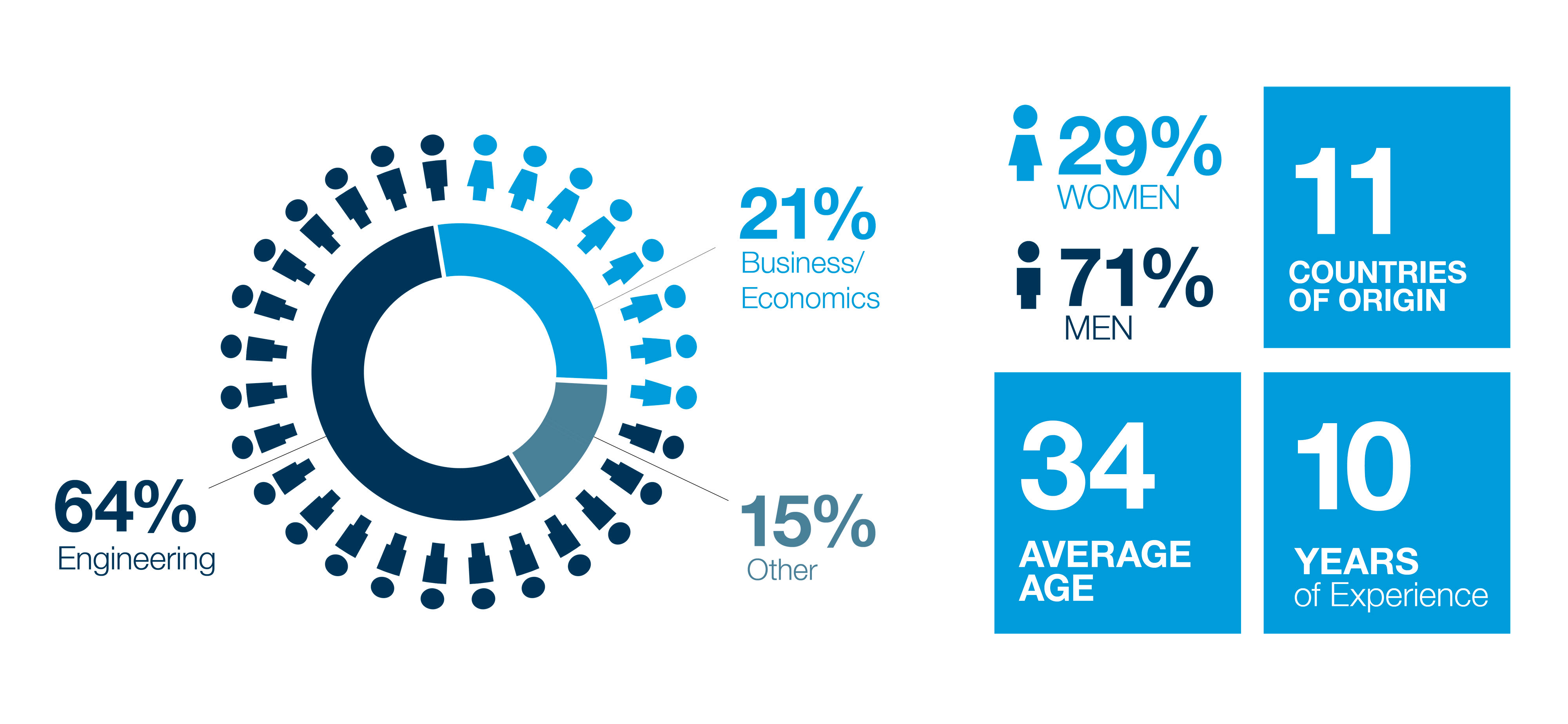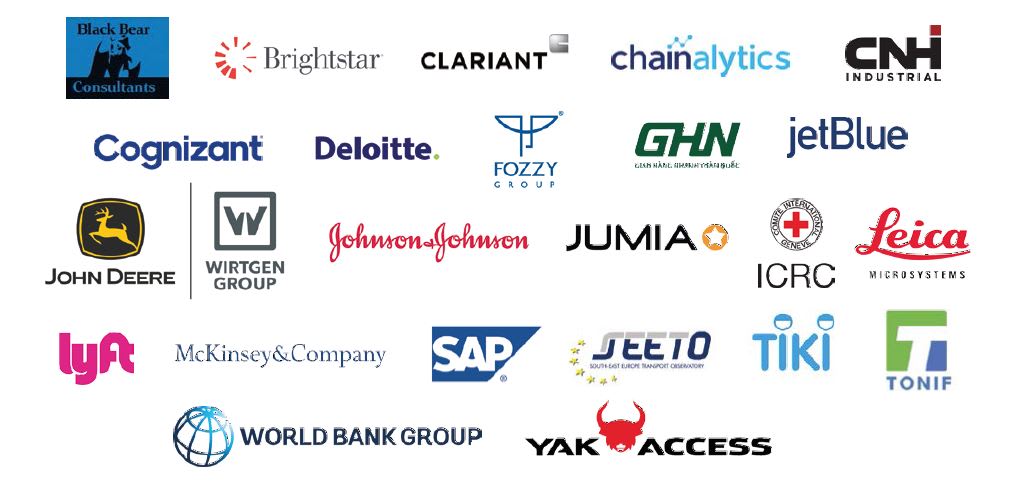
Master of Engineering in Logistics and Supply Chain Management (ZLOGb)
Zaragoza Logistics Center

Key Information
Select location
Campus location
Zaragoza, Spain
Languages
English
Study format
Blended
Duration
5 months
Pace
Full time
Tuition fees
EUR 17,700 / per course
Application deadline
11 Jun 2024
Earliest start date
Jan 2025
Introduction
Master of Engineering in Logistics and Supply Chain Management (ZLOGb)
The blended master's degree refers to a new option that is being developed by MIT that would allow learners to combine the MITx MicroMasters credential with one+ semester at Zaragoza Logistics Center in Zaragoza, Spain (and which will also include a 3-week stay at MIT). The MicroMasters credential requires a learner to successfully pass five rigorous online courses in supply chain management and also pass a proctored comprehensive exam. Learners with the MITx MicroMasters credential in SCM can then apply to MIT for the blended SCM master’s degree. This new program would require the successful applicant to come to MIT for January and continue studies in Zaragoza through May.
When to apply
All applications and supporting material must be submitted by the relevant deadlines:
- I Round: December 19
- II Round: June 11
Admissions
Curriculum
Blended vs Full-time
For the Blended ZLOG Masters program, we will not require applicants to take the GMAT or GRE test, nor will we be looking at their undergraduate GPA, nor the undergraduate courses they have taken. Performance in the five online courses and capstone exam will substitute for these items. This allows learners with non-traditional backgrounds and education to enter into the SCM masters program.
However, since the Blended Master's students will need to complete their master's capstone in only five months instead of the usual 10 months, we will be looking closely at the outline of their proposed project. Successful candidates will need to put time and energy into carefully preparing their proposal in advance of their application, possibly including engagement with a company to sponsor their project or through an entrepreneurship program.
Curriculum
Leading Global Supply Chains:
Reinforces supply chain concepts and develops management and teamwork skills. MIT students participate with their peers from CTL’s sister centers in Spain, Malaysia, Colombia, Luxembourg, and China. This is a very intense IAP course that includes the following components:
- 5 lectures by leading MIT researchers each with short homework assignments,
- 6 lectures by C-level industry executives followed by filmed small team interviews,
- 6 rounds of the team-based Fresh Connection management simulation game,
- 6 in-depth leadership workshops,
- a major team-based APICS-Sponsored Case Competition (paper, presentation, judges),
- 6 Supply Chain Research workshops each with hands-on team-based assignments,
- 1 day-long tour and one ½ day tour of best-in-class supply chain operations,
- a major Research Expo (poster session) attended by 200-300 supply chain executives
Advanced Topics:
The Advanced Topics Seminar spans several terms, featuring elite professors who offer short, intense seminars on advanced topics. We typically feature professors from MIT and from leading schools in Europe. Some of these seminars may be scheduled as the year progresses.
Logistics Facilities & Operations:
This course provides the students with an understanding of how logistics systems behave. Critical factors (costs, variability, labor/space/financial constraints) have a significant impact on the system performance. Commonly used transportation network optimization, routing and scheduling with inventory consideration, capacity management, flow management principles, and push/pull systems are discussed. The ultimate goal is to equip students with the necessary tools to improve the system performance (i.e., increasing throughput, improving customer service) in a supply chain setting given the constraints.
System Dynamics:
Uses a mixture of simulation models, role-playing games, and case studies to develop principles for the successful management of complex strategies in a dynamic world. Case studies of successful strategy design using system dynamics. Considers strategic issues such as business cycles, market growth and stagnation, the diffusion of new technologies, the misuse of forecasts, and the rationality of managerial decision making.
Energy and Sustainable Supply Chains
The pursuit of reliable energy resources has shaped the history of the world in the past hundred years. The technological advancement of this period is also largely indebted to the technological needs of generating power from nuclear, fossil (oil, coal, natural gas), and renewable (wind, solar, hydropower) sources. Nevertheless, managing the chain of supply is critical regardless of the energy source as a level of service below perfection is unacceptable to the end customers.
In any discussion about energy supply chains, the issue of sustainability cannot be left out. Building on our first four sessions and after introducing the framework to analyze supply chain sustainability, this topic will be showcased by interesting examples from the food (tea, soybean, seafood, chocolate) and apparel industries. These two industries, as well as NGOs and the public sector, are among the major users of the supply chain sustainability expertise.
Electives are only offered in the spring. Below is a list of electives that were offered over the past five years:
- Energy Risk Management
- Pricing and Revenue Management
- Factory Logistics
- Advanced Planning & Execution Systems
- Impact and Use of Auto-ID & RFID
- Operations Strategy
- Supply Chain Contracts & Coordination
- Advanced Forecasting
- Service Operations Logistics
- Reverse Logistics
- Decision Support Systems
- Project Management
- Mass Customization
- Economics of the Firm for Supply Chain Management
- Retail Supply Chain Management
- Humanitarian and Public Health Supply Chains
- Freight Transportation
- Manufacturing Logistics
Supply Chain Strategy:
In this course, students learn how supply chain strategies must be designed to fit with the particular requirements of various competitive environments, as well as a company's competitive strategy. It also investigates barriers to integrating supply chains, including behavioral issues (e.g., misaligned incentives and change management) and operational execution problems. The course gives special emphasis to the tools students will need to participate effectively in decisions about operations in a global economy.
Spanish Culture
Advanced Topics:
The Advanced Topics Seminar spans several terms, featuring elite professors who offer short, intense seminars on advanced topics. We typically feature professors from MIT and from leading schools in Europe. Some of these seminars may be scheduled as the year progresses.
Writing Seminar
Thesis Project
Rankings
- Ranked as no. 1 Master’s Program in Logistics worldwide by Eduniversal since 2016.
- Ranked as no. 1 Master’s Program in Logistics in Spain by El Mundo since 2011.
Program Outcome
Credits
87 ECTS credits
Degree Awarded
Master of Engineering in Logistics and Supply Chain Management from the University of Zaragoza (own degree/estudio propio) and Graduate Certificate in Logistics & Supply Chain Management from the MIT Global Scale Network
Program Tuition Fee
Gallery
Ideal Students
Who should apply
Diversity in the student body is an important characteristic of the MIT Masters in Supply Chain. While applicants are expected to have an aptitude for analytical thinking, they do not need to have an undergraduate degree in engineering. We invite students of all disciplines to apply. Beyond education, relevant work experience weighs heavily in the admissions decision.
Current class profile

Career Opportunities
Career Services at ZLC facilitates relationships for MIT Zaragoza Master in Supply Chain (ZLOGb) students and graduates with prospective employers, graduate school recruiters, and fellow alumni. The Career Services Offices fosters career advancement and contributes to the growth and success of our graduates.
Our alumni are working for companies such as:

Program delivery
- Online (5 courses)
- MIT Campus, Massachusetts, USA (3 weeks)
- ZLC Campus, Zaragoza, Spain (4 months)